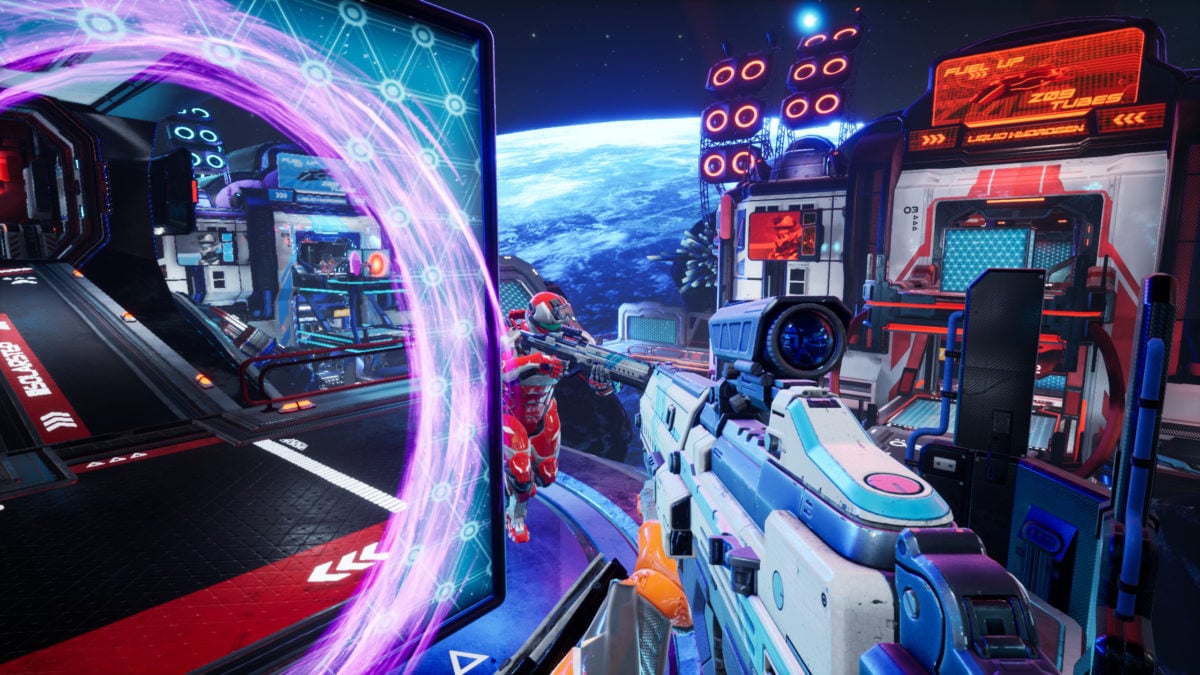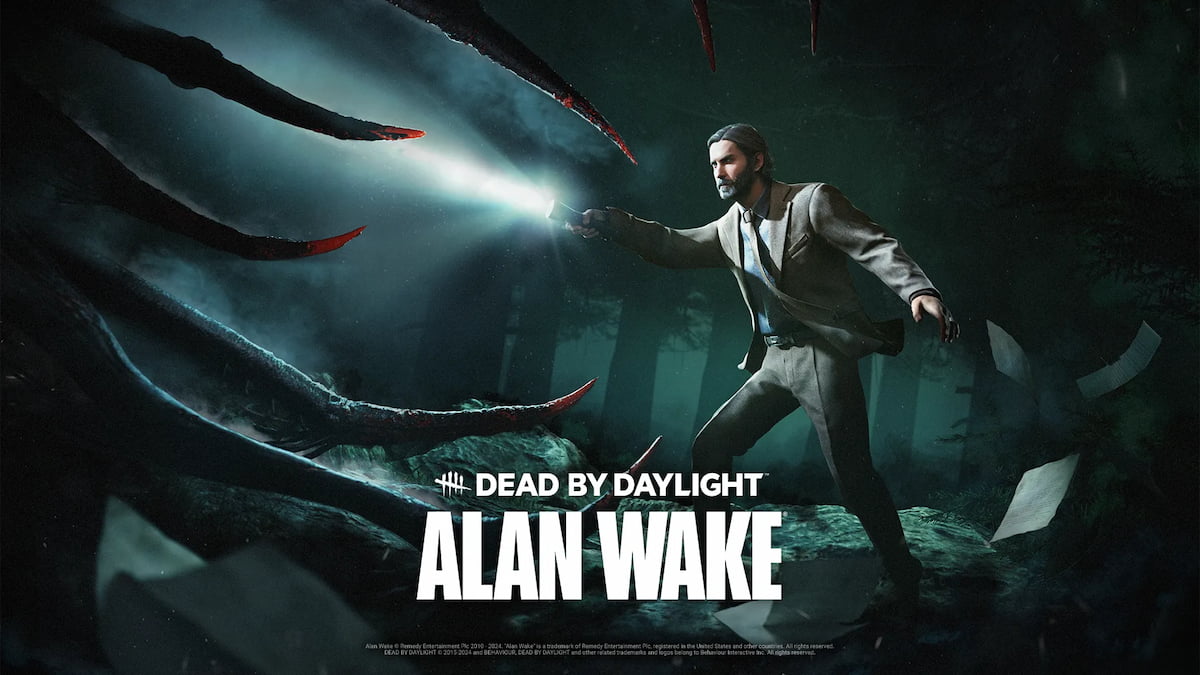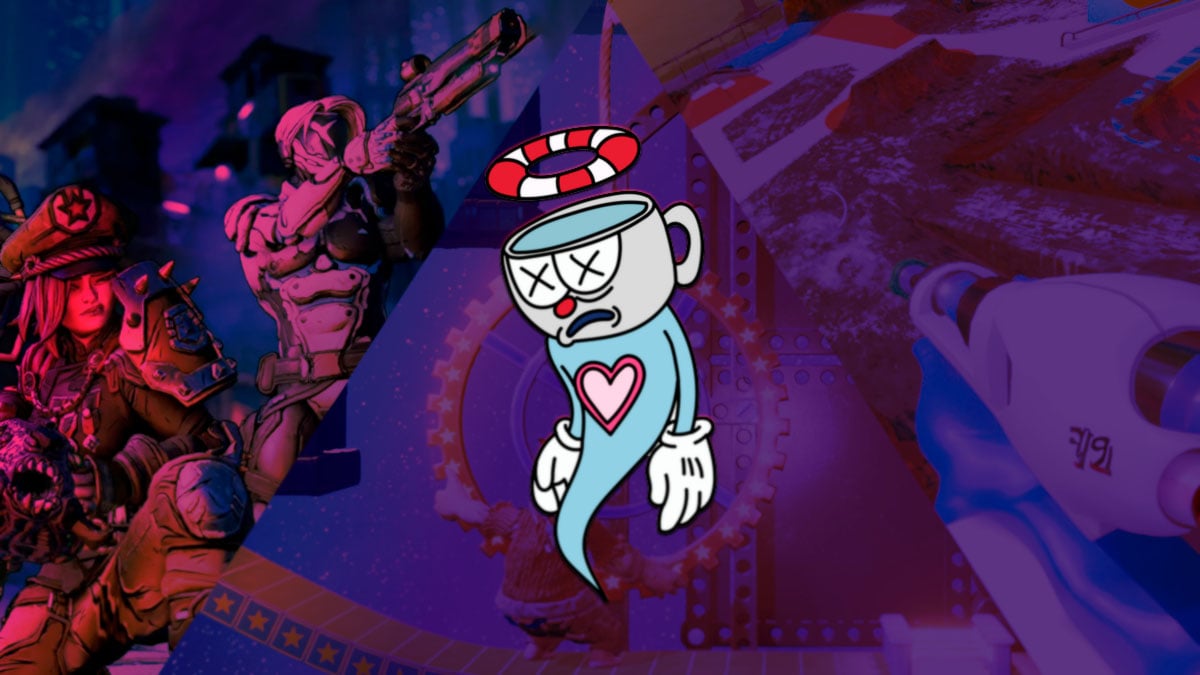I sometimes fear that I might be too reductive in calling first-person shooter Splitgate “Halo meets Portal,” which is a phrase tossed around any time the game is mentioned. But it’s literally that — developer 1047 Games has created a happy marriage between Halo 2 and 3-style arena shooter sensibilities and the traversal possibilities experienced in Valve’s Portal games. It’s such a fun and simple idea that you’ll wonder why you weren’t the one to think of it.
Despite initially releasing in 2019 on Steam, Splitgate made its way into the public eye this month with a public beta that included crossplay on PC, Xbox, and PlayStation. The beta attracted millions across all platforms, overloading the servers and pushing the final release date back to August for technical reasons and a major funding opportunity. And the stampede of players is here for good reason — Splitgate is fun.
The Halo feel takes you back to the LAN days of old with the original Halo games, with similar gunplay and design sensibilities. But at the same time, it also reminds you what video games have become today, inheriting the same economic model that most modern online games have formed themselves around.

As mentioned, Splitgate plays very much like classic Halo, albeit with a sprint function. The arsenal is quite familiar: assault rifle, battle rifle, SMG, shotgun, sniper, pistol, plasma rifle, and a few other fun weapons like the rail gun. You’ll play as heavily armored dudes with regenerating health, with suits that can take a lot of hits, making for a relatively long TTK. The twist here is that players can also shoot portals out of their wrist, one to enter and another to exit out of.
There are blue surfaces around each map where you can place portals, unlocking a number of different possible strategies. You can use portals to flank unsuspecting enemies, or you can utilize them to make a quick getaway. One strategy I liked to employ was placing one portal near my team’s spawn and the other somewhere in the middle of the map — I could go in and out, offing opponents trying to run to our side of the map, and retreat back to our spawn when need be.
One quirk of the portals is that enemies can’t see where yours go — as a result, I’ve had many escapes where I run through my own portal and a pursuing opponent would stop in their tracks before entering. Since I’m still able to see them, as though it’s a one-way mirror, I shoot and kill them through the portal. But Splitgate finally clicked with me on a map called Atlantis — the map features a central circular area, and you can place portals on the walls directly above the entryways that players run through. I put one portal on the opposing wall, another near my spawn, and using a sniper rifle, I picked off oblivious opponents through my portal in my own physics-bending nest.

The Halo homage is charming, although it gets eerily close in an uncanny valley sort of way; for instance, the announcer has a similar cadence to the classic Halo announcer, even excitedly announcing double kills and triple kills — afterward, he starts spouting out made-up words like “killedescope.” Even the game modes are identical: Team SWAT, Shotty Snipers, King of the Hill, and a game mode blatantly named Oddball all carry over from Halo in an eerie pastiche of the series.
One pseudo-original game mode is Teabag Confirmed, an obvious riff of Kill Confirmed from Call of Duty and a wink at the classic Halo taunt of crouching on an enemy’s head after killing them. It harkens back to an era where kids would yell inappropriate words at you in multiplayer lobbies and insult your mother — why a crude and archaic display of eye-rolling unsportsmanlike conduct would be the basis of a game mode today is troubling at worst and cringeworthy at best. Not all memories of mid-2000s multiplayer are worth holding onto.
I also want to explore more of the in-game background — many players are getting into Splitgate very suddenly, and the world the game presents is a bit confusing. While there’s never a need to build elaborate lore or justify why these armored soldiers — and what appears to be a human-sized flat cap-donning cat named Oliver — are fighting, it would be nice to have players something to attach to. Even Fortnite has Jonesey and Peely.

Speaking of Fortnite, going from a game of Splitgate to the lobby is like going through a time portal, with the menu resembling that of every battle royale out now. A battle pass, loot boxes, an inventory locker, and a store page are all present, reminding you of the microtransaction hole that modern multiplayer games are. It may not be a negative, depending on who you’re talking to, but I wonder if an old-school experience like Splitgate could have kept it even simpler.
New content drops are great, and the season structure always gives players something to look forward to, but now I anticipate ridiculously colorful skins, meme references, potential IP crossovers, and probably an anime look for that Oliver cat character. It is very much a structure and philosophy that can have some players going into “back in my day” mode.
It will be fascinating to see Splitgate, a game built out of many different hybrid combinations, will evolve, and what kind of community it will form — hopefully, a healthy and safe one. In its early days as a cross platform game, players just aren’t savvy enough with the portals just yet, and I hope to see some more brave and bold plays and less hesitance to go through enemy portals. Perhaps once I get into ranked mode with much better players, I’ll see how truly bad at Splitgate I am.







Published: Jul 29, 2021 03:38 pm